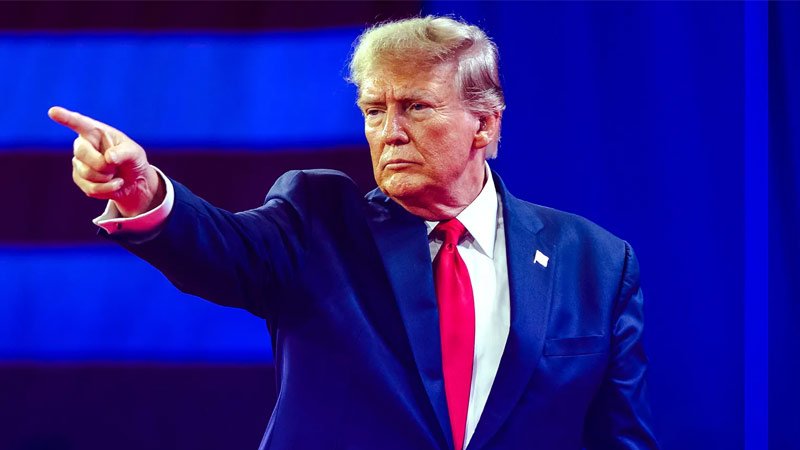Donald Trump’s presidential campaign announced on Tuesday that it will begin accepting cryptocurrency donations, aiming to create a “crypto army” ahead of election day.
This move allows supporters to contribute using digital assets that can be traded online without relying on traditional banking systems.
The Trump campaign has launched a fundraising page enabling “any federally permissible donor” to contribute to its political committees using any cryptocurrency supported by the Coinbase exchange, according to AP.
Currently, the campaign accepts popular cryptocurrencies like Bitcoin, Ether, US Dollar Coin, and internet-favorite coins such as Shiba Inu Coin and Dogecoin. Notably, billionaire Elon Musk is a fan of Dogecoin and Shiba Inu Coin, traded as DOGE and SHIB, respectively.
It remains unclear whether the campaign will retain the cryptocurrency donations or sell them immediately, and what fees might be incurred during liquidation. Despite the campaign’s intention to comply with US election laws, the anonymous nature of cryptocurrencies could complicate the verification of donation sources.
Trump has previously received millions in cryptocurrency through his Trump Digital Trading Cards non-fungible token projects and the MAGA coin released last August, as reported by ABC News.
“Crypto is nonpartisan and moves money forward because it’s cheaper and faster. The Coinbase platform is open to all candidates this election season,” said Coinbase spokeswoman Julia Krieger to The Associated Press.
Independent candidate Robert F. Kennedy Jr.’s campaign is also accepting Bitcoin donations. Joe Biden’s campaign did not respond to AP’s queries regarding cryptocurrency contributions.
While some states prohibit cryptocurrency donations in state elections under current campaign finance laws, the Federal Election Commission allows committees to accept Bitcoin contributions.
A 2014 advisory opinion from the commission determined that bitcoin qualifies as “money or anything of value” under the law, advising political committees to value bitcoin contributions based on their market value at the time of receipt.





